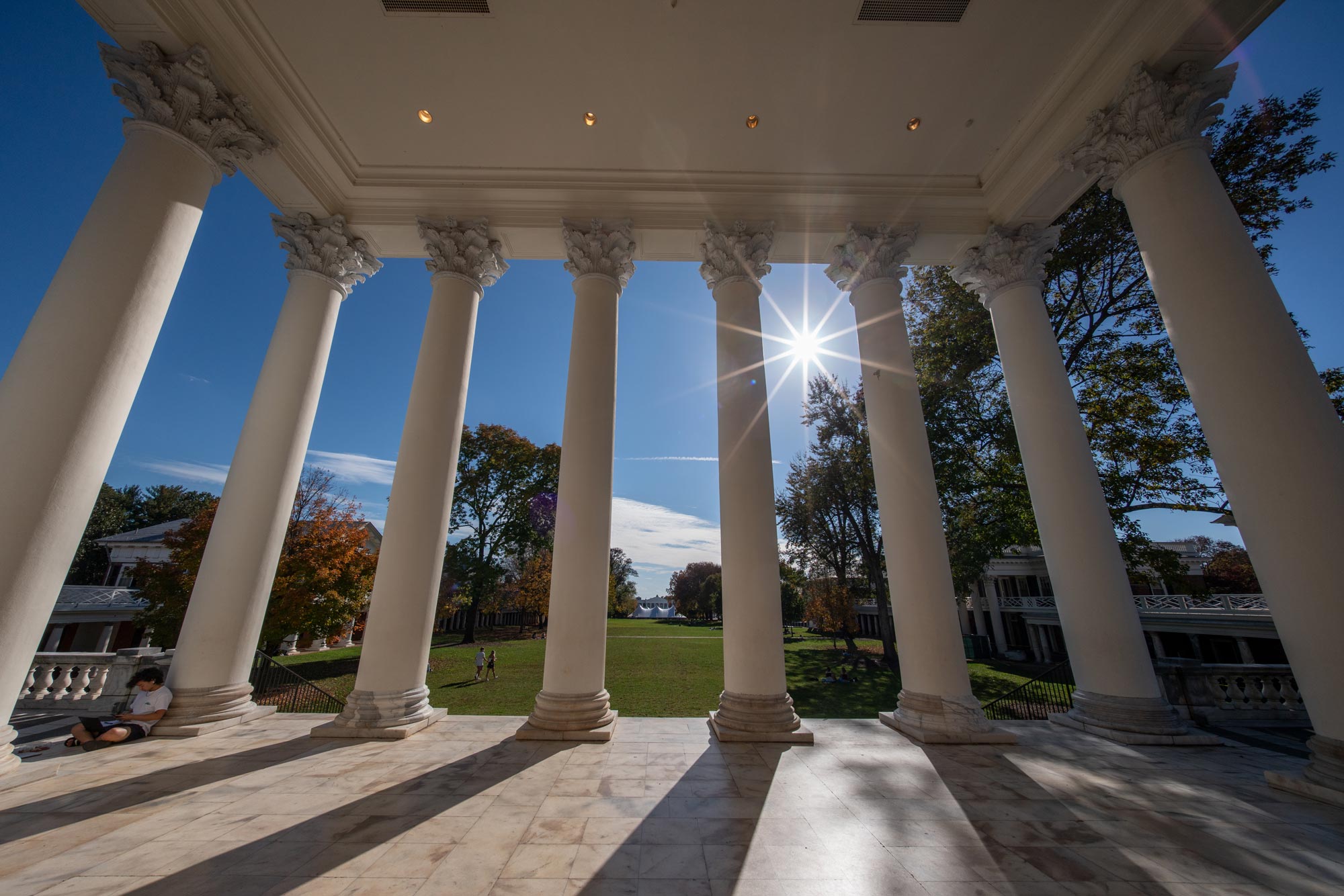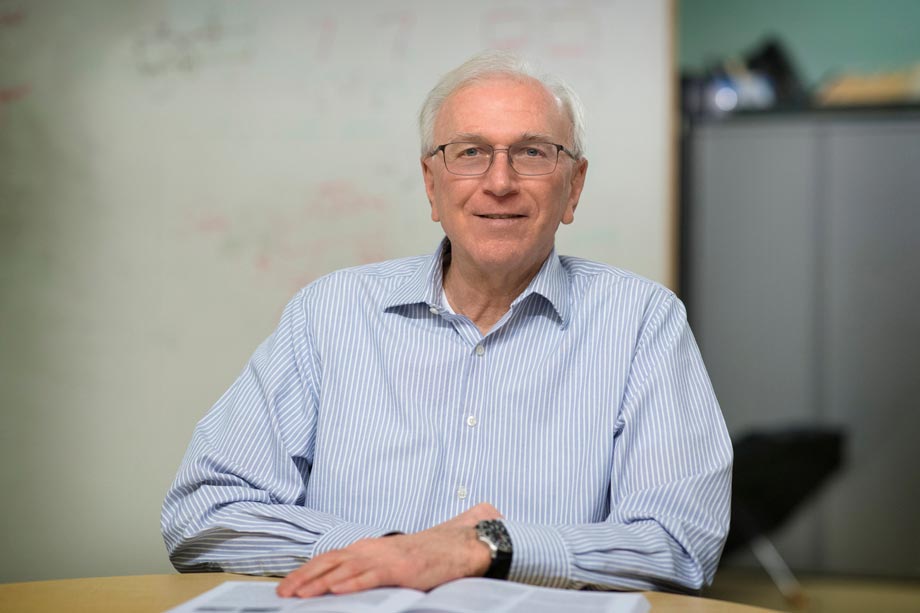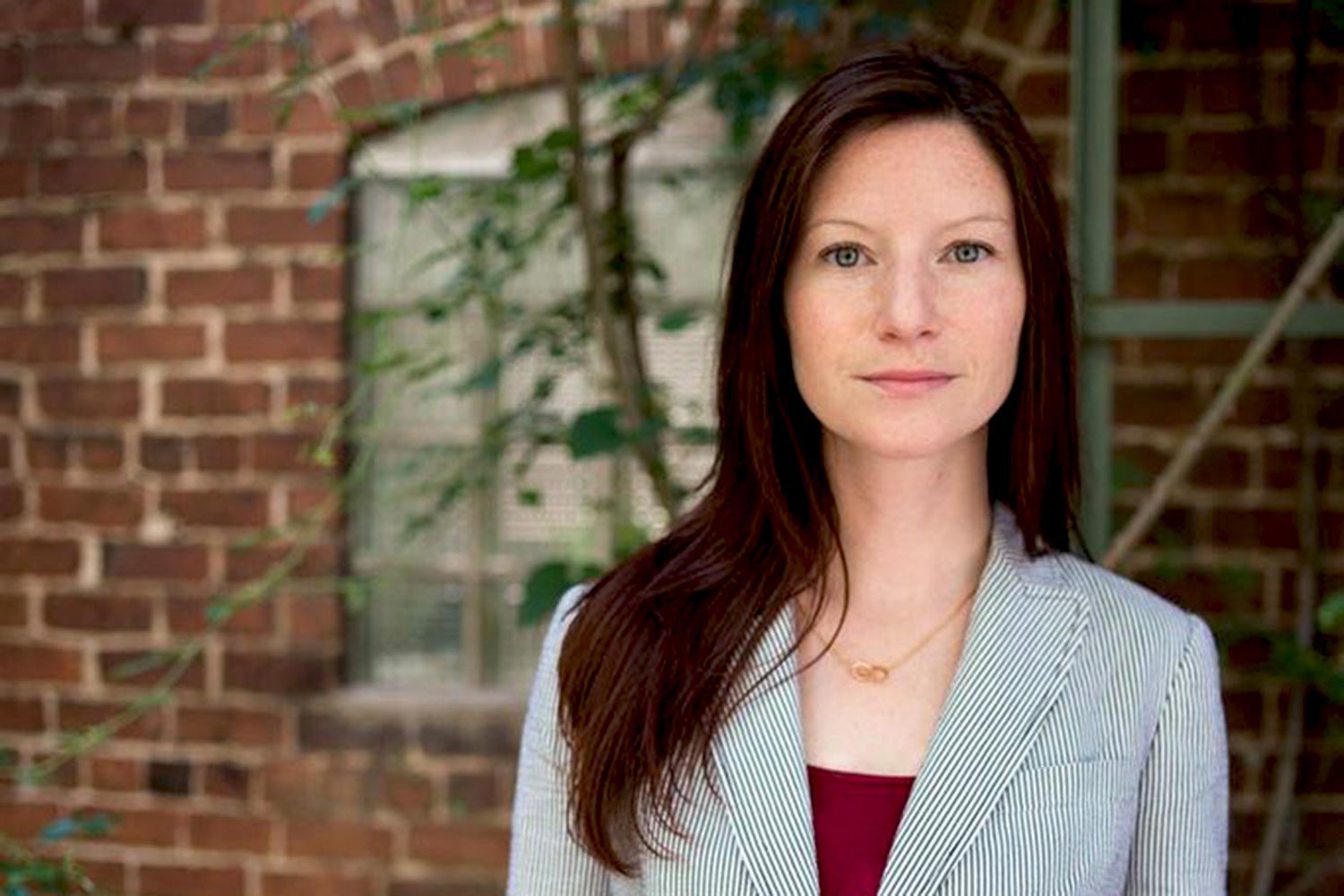On Friday during a virtual ceremony over Zoom, the University of Virginia honored and recognized faculty members for their outstanding contributions to their fields and the impact of their research and scholarly activities at the annual Research Achievement Awards.
“Although it was a challenging year for researchers, we are proud of our faculty’s achievements and accomplishments,” Melur “Ram” Ramasubramanian, UVA’s vice president for research, said. “We believe it’s important to celebrate our faculty who are making a significant impact on the world with their research and scholarship.”
“Our dedicated and talented researchers are deeply committed to the mission of this university—advancing knowledge and passing it on to the world and the next generation,” Provost Liz Magill said. “The Research Achievement Awards are a great way to recognize our researchers for making meaningful contributions in their disciplines, supporting their peers and mentees, and having a positive impact on our communities.”
“If this past year has taught us anything, it’s that academic research is a fundamental part of a successful society, fueling discoveries in medicine, breakthroughs in engineering, and changing the way we think about and respond to the natural and social world,” President Jim Ryan said. “The research award winners truly exemplify the high-quality scholarship that makes UVA a leading research institution.”
Ken Ono, Thomas Jefferson Professor of Mathematics, delivered the keynote address, and received a Distinguished Spotlight Award to recognize his contribution to the field of mathematics. He has won Sloan, Packard and Guggenheim fellowships, and in 2020 Academic Influence named him one of the top 20 most influential mathematicians of the past decade.
Research Excellence Award
Prasanna V. Balachandran, School of Engineering and Applied Science
Balachandran’s research focuses on materials informatics, an emerging field of materials science research. He has tackled several problems of materials science, including thermal management, nanoelectronics materials and the design of coatings for use in extreme environments.
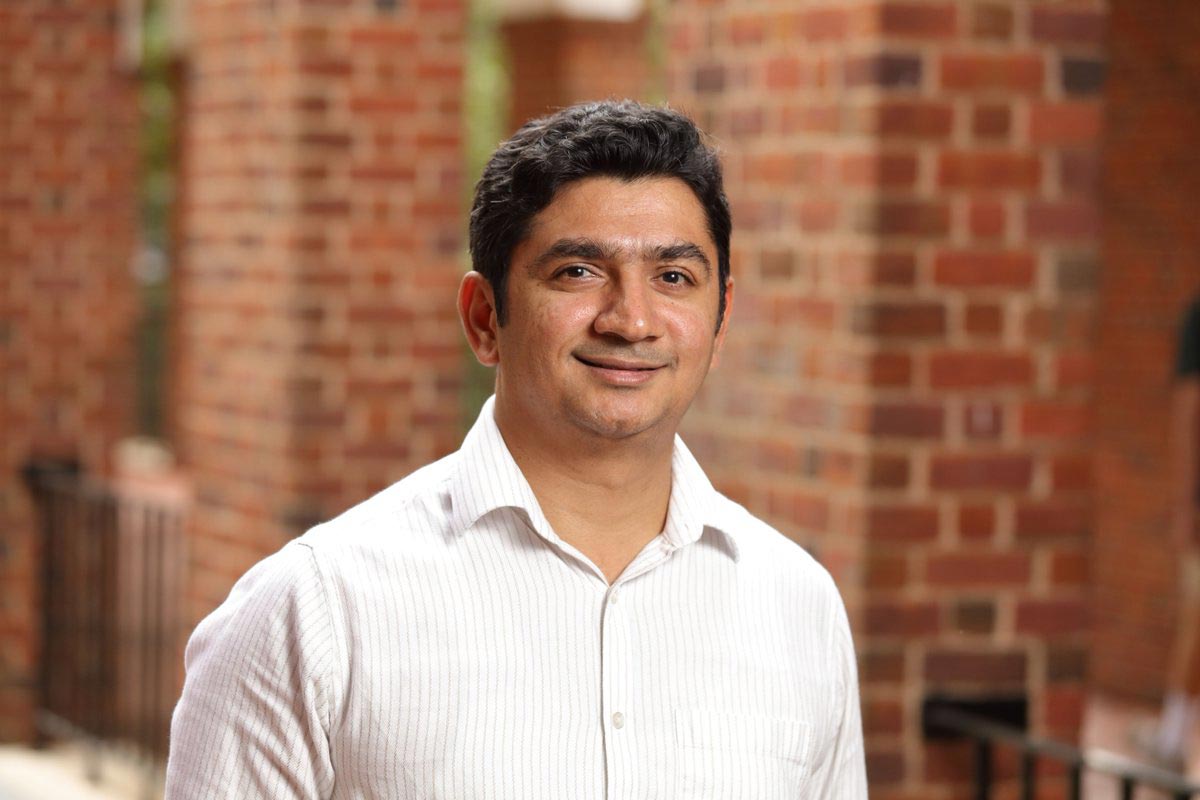
Prasanna Balachandran was honored for research in materials science, including thermal management, nano electronics materials and the design of coatings use in extreme environments. (Contributed photo)
Computational Materials Science Journal recognized Balachandran as a Rising Star in Computational Materials Science, and he was also a recipient of the DARPA Young Faculty Award in 2020.
Balachandran’s “knowledge in the application of artificial intelligence and density functional theory calculations to address grand challenge problems in the field of materials science and engineering makes him one of the foremost experts in the discipline,” said Jacob L. Jones of North Carolina State University’s College of Engineering.
L. Ilse Cleeves, College and Graduate School of Arts & Sciences
Cleeves is rapidly developing into one of the world’s leading experts in theoretical astrochemistry and its applications to newly forming and formed planets. Her research has focused on understanding the molecular and physical origins of planetary systems, getting closer to answering questions about whether life on planets was aided by organic materials delivered to planets as they formed or afterward.
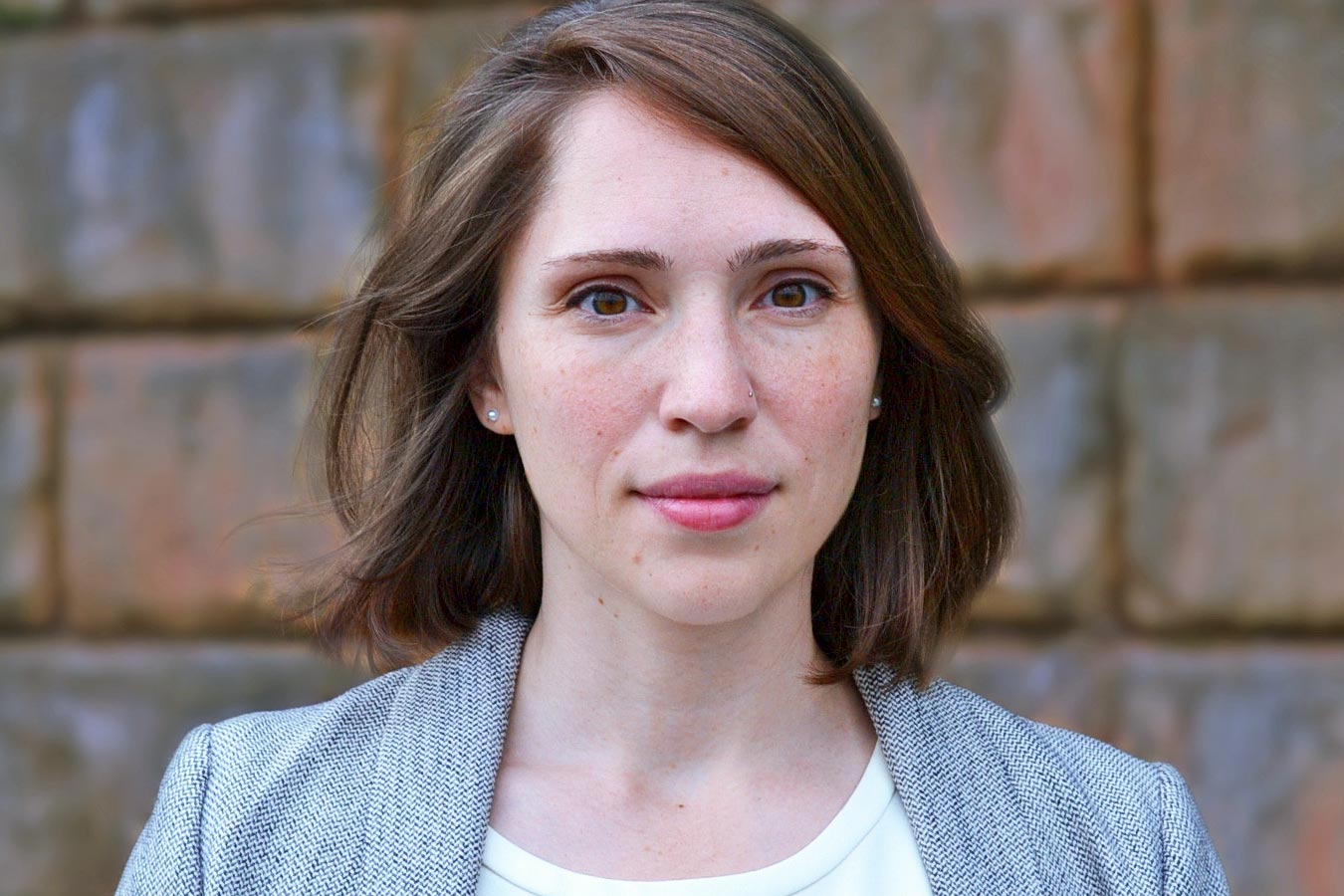
Ilse Cleeves received a Research Excellence Award for her astrochemistry research. (Photo by Dan Addison, University Communications)
Cleeves received the 2018 American Astronomical Society’s Annie Jump Cannon Award, given for outstanding research by a young North American female astronomer, and recently earned a prestigious Packard Fellowship and a Johnson & Johnson WiSTEM2D award.
Cleeves “is a brilliant and very productive scientist who is making very important contributions to our understanding of astrochemistry and the origin of planets,” said Craig L. Sarazin, chair of UVA’s Department of Astronomy.
Chongzhi Zang, School of Medicine
Zang’s research focuses on developing computational models and algorithms for analyzing data from cutting-edge technologies, and on using data science to study the epigenetics in human diseases, primarily cancer. He has developed bioinformatics tools including SICER, a ChIP-sequencing analysis tool, and BART, a big-data transcriptional regulator prediction tool. Both are used widely in the research community.
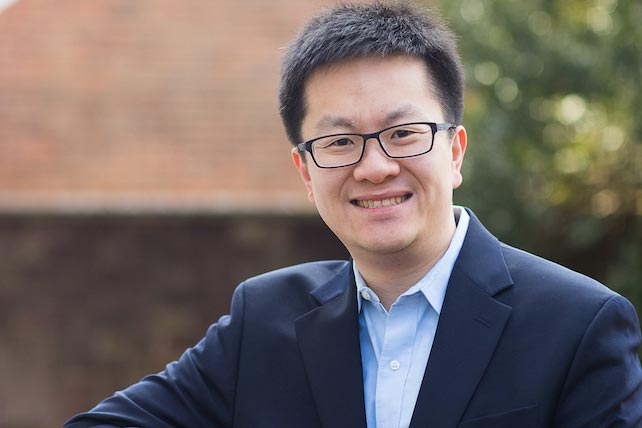
Chongzhi Zang using cutting-edge technologies and data science to study epigenetic in human diseases, primarily cancer. (Contributed photo)
“His research is both data-driven and translational, as it focuses on human cancer systems, a passion developed during his Ph.D. and postdoctoral training experiences and continuing as a productive, innovative computational scientist,” Stephen Rich of the UVA School of Medicine said. “Chongzhi has made remarkable and groundbreaking contributions to the studies of chromatin epigenetics and transcriptional regulation in cancer.”
Distinguished Researcher Award
William A. Petri Jr., School of Medicine
Petri’s research is on the role of the immune system in infections, and has been largely focused on intestinal infections like C. difficile colitis and their consequences in children in the developing world. In 2020, Petri stepped forward to provide regular updates on new developments in COVID-19 virology, immunology, treatment, vaccines and pandemic control, locally as well as globally. His research extended to include vaccine improvements and a monoclonal antibody trial to help prevent infection and progression of COVID-19.
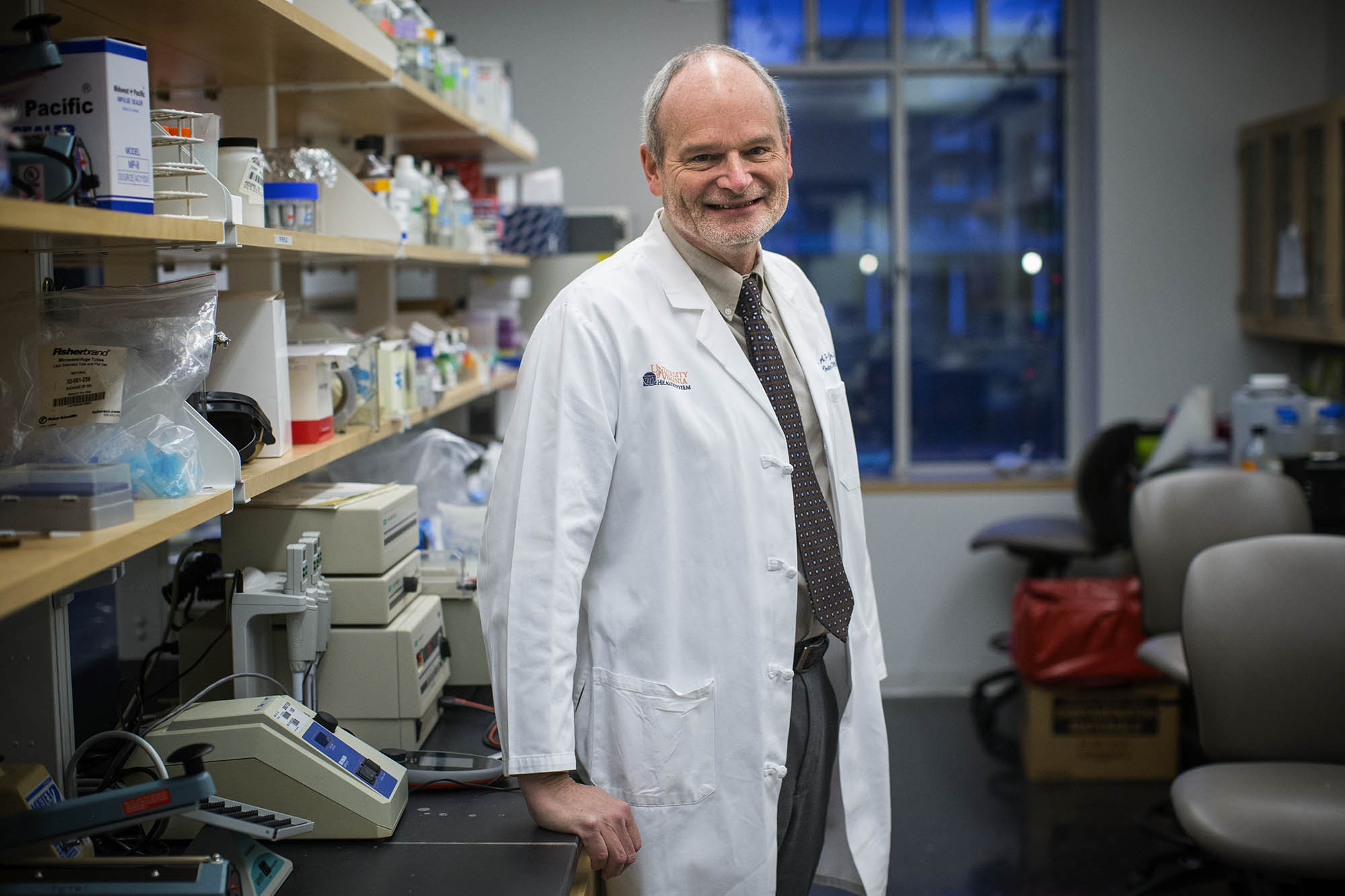
Dr. William Petri has been a leading voice in COVID-19 research at UVA and beyond. (Photo by Sanjay Suchak, University Communications)
His many awards include an NIH MERIT Award, Virginia Outstanding Scientist and Inventor of the Year, and he recently was selected to receive the 2021 National Foundation for Infectious Diseases Maxwell Finland Award.
“Petri is richly deserving of this prestigious award for his international leadership in the study of diarrheal infections, a leading cause of death of children in the developing world,” said Upinder Singh, division chief of Infectious Diseases and Geographic Medicine at Stanford University. “There is no one who is more innovative or made greater advances in this key area of study.”
Kodi S. Ravichandran, School of Medicine
Ravichandran’s research focuses on “cell clearance,” or how the body turns over billions of cells every day. He looks at how this process affects human health and disease. His work has led him to work on problems with inflammatory illnesses like rheumatoid arthritis.
As chair of the Department of Microbiology, Immunology, and Cancer Biology, he frequently collaborates with other faculty members. His work has led to a long publication list, including 12 papers in the prestigious journal Nature.
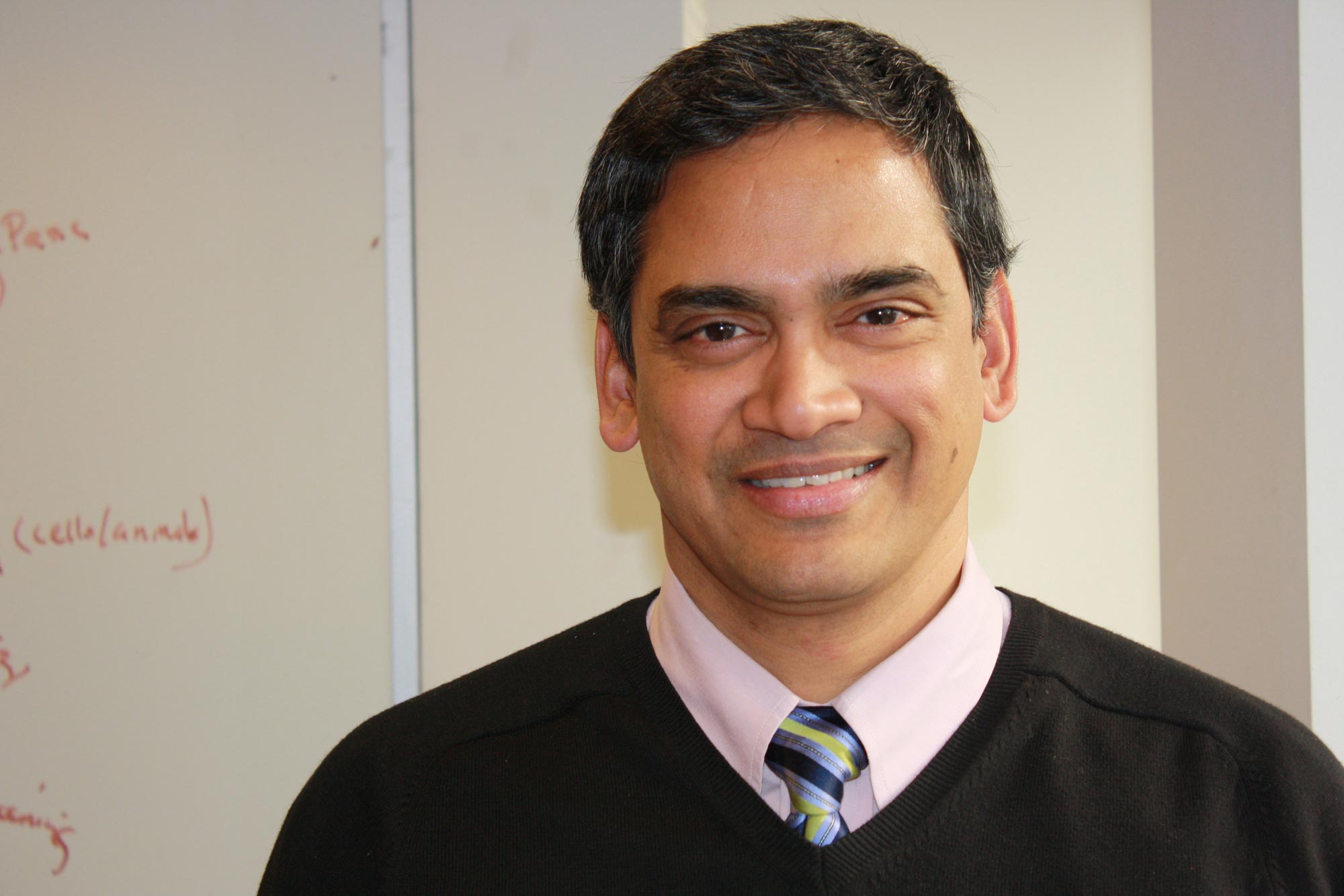
Kodi S. Ravichandran was honored for his research on “cell clearance” or how the human body turns over cells. (Contributed photo)
Ravichandran’s “discoveries have transformed the field and their impacts have been immense, both from a fundamental biological science perspective and from the perspective of understanding disease pathogenesis in many and varied contexts,” said Christopher Gregory, director of the University of Edinburgh Centre for Inflammation Research. “In this respect his work underpins future translation of the field into clinical care with, ultimately, invaluable societal impact.”
Xiaodong (Chris) Li, School of Engineering and Applied Science
Li’s research spans advanced manufacturing, materials and mechanics. He has created several new areas of study that have made a significant impact.
Li’s manufacturing innovations include deploying a variety of monitoring techniques to catch defects and correct them in real time using digital sensors. Li “together with his collaborators created an entirely new area – digital image correlation-enabled smart manufacturing, which has been used worldwide in academia, research labs and industry and has made a significant impact economically,” Scott Mao of the University of Pittsburgh’s Swanson School of Engineering said.
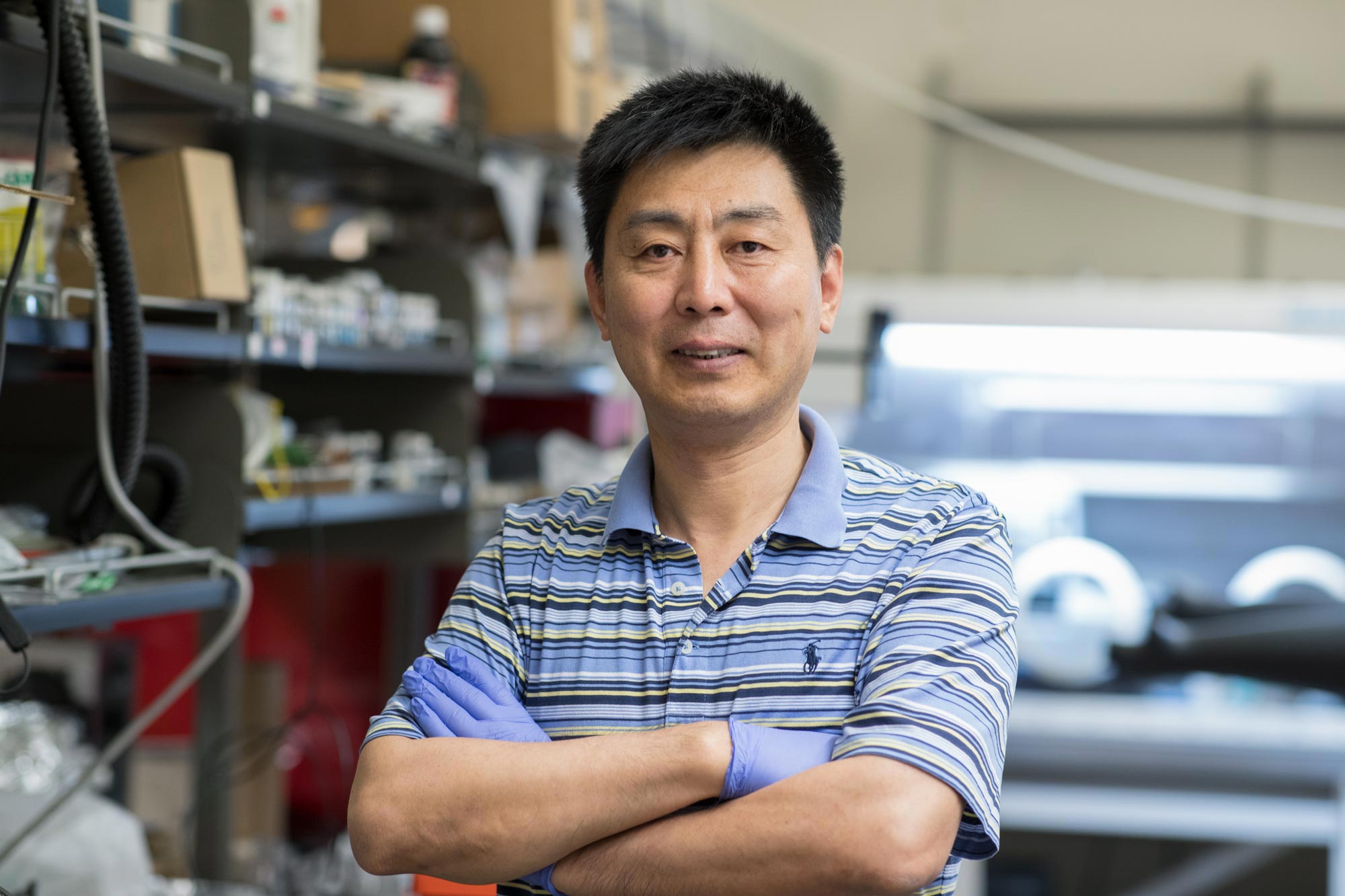
Xiaodong (Chris) Li's work spans manufacturing, materials and mechanics. (Photo by Dan Addison, University Communications)
Li also developed ways to make manufacturing processes environmentally friendly by using organic matter like banana peels as fuel.
His work in materials includes developing a strong, lightweight, heat-resistant metallic composite by mimicking the structure of mollusk shells, and turning a cotton T-shirt into a wearable capacitor. Li also designed nanoparticles for a specialized drug delivery method to help cancer patients.
Research Collaboration Award
Joseph Hart, School of Education & Human Development; David Diduch, School of Medicine; Mark Miller, School of Medicine; Stephen Brockmeier, School of Medicine; Brian Werner, School of Medicine; F. Winston Gwathmey, School of Medicine
The interdisciplinary research team, comprised of kinesiology professor Hart and orthopedic surgeons Diduch, Miller, Brockmeier, Werner and Gwathmey, bridges the clinic and the laboratory with its Lower Extremity Assessment Program.
